White Label SEO Software: What It Is and Why Agencies Need It
Search Engine Optimization (SEO) has become the cornerstone of online visibility and search results rankings. For any business, success is hard to achieve, and significant revenue growth is illusory unless powerful SEO tools are deployed to support the operations.
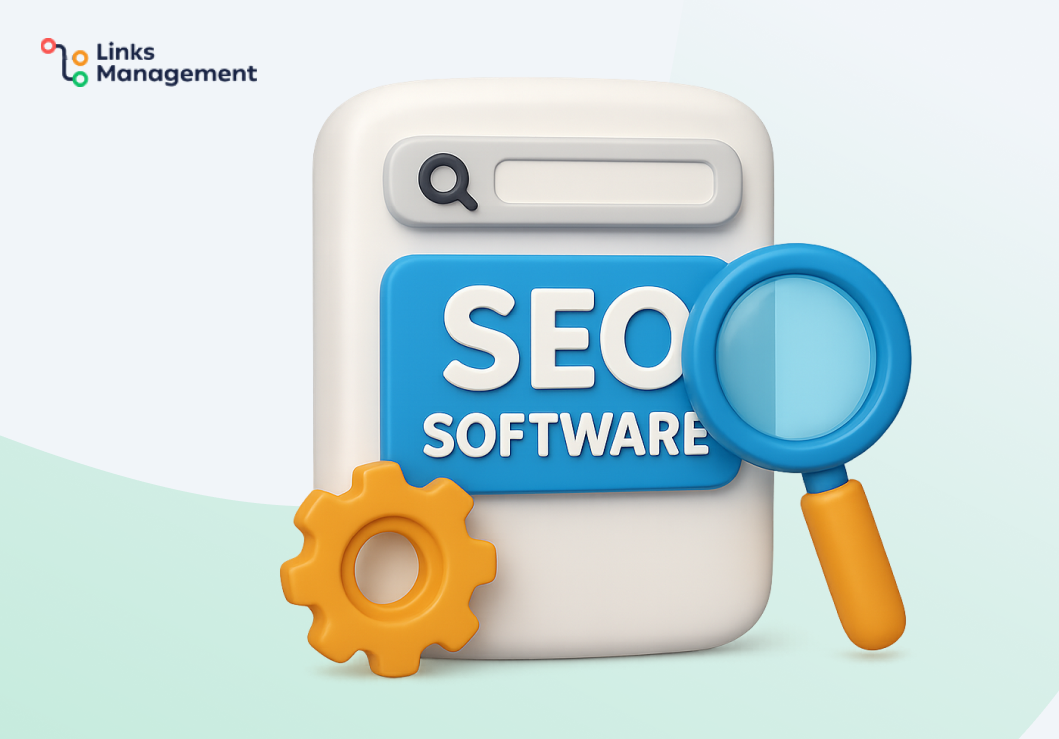
However, not every business can develop and deploy its own SEO software. For one, it’s hard to develop and configure. Therefore, it takes significant investments and human resources.
The solution? White label SEO software. Created by experienced developers, this software represents a compromise between cost, speed, and customization for the primary customers — professional SEO agencies and consultants.
Read on to learn how this software works, explore its advantages, and check out some of the best white label SEO software examples.
Contents
- What Is White Label SEO Software?
- Top Benefits of Using White Label SEO Tools
- Key Features to Look for in White Label SEO Software
- Overview of the Best White Label SEO Tools
- 1. Web CEO — Rebrandable SEO Suite You Can Actually Resell
- 2. SEOptimer — Budget-Friendly Audits with Multilingual Reports
- 3. SEMrush — Power Suite with Light White-Label
- 4. Serpstat — Team-Ready SEO with API & Branded Reports
- 5. BrightLocal — Local Listings, Citations & White-Label Reports
- 6. MOZ Pro — Familiar SEO Stack, Light White-Labeling
- 7. DashThis — Rebrandable Dashboards That Centralize Your Tools
- 8. ReportGarden — Templates, Widgets & a Client Portal
- Challenges and Limitations of Private Label SEO Tools
What Is White Label SEO Software?
White label SEO software is essentially a blank check or a carte blanche — a turnkey SEO product that comes with no brand names or labels on it. The customer, or the buyer, is free to use their own brand or product name and position the software as their proprietary solution.
Other common names include private label SEO tools, rebrandable SEO platforms, SEO reseller software, and turnkey SEO software solutions.
The Rise of White Label Tools in SEO
The first wave of private label SEO tools appeared in the early 2010s. They were not perfect. Most featured only custom subdomains and report branding, while some advanced ones added a white-label login and a reporting-first interface around 2013.
However, they spread quickly as reporting needs grew. In 2024, 60% of agencies said client SEO reporting tools are important, and many run these as branded dashboards rather than static files.
Here is why the rebrandable SEO platforms took off and what made them stick:
- Speed: Launching is fast and doesn’t take the internal agency’s resources.
- Reliability: Professional SEO developers have gained significant experience by now.
- Focus: Instead of development, clients can focus on their customer relationships and SEO strategy.
- Scale: A universal fit for any business size, type, and maturity level, easily scalable.
Turnkey SEO software solutions met a rising bar for presentation and speed. The combination of brand control and real-time data is why they shifted from novelty to default for many teams.
How Rebrandable SEO Solutions Work
Turnkey SEO software solutions are developed by professional development agencies specializing in SEO. They know all the nitty-gritty of this software and how to make it universal enough to fit any client and any need.
Developers promote their SEO tools just like a retailer would promote their products and services; however, the primary business model used with white label SEO is B2B. This is when a company is selling to another company. It’s not a mass market, and the main customers are service providers who resell SEO under their own brand.
Individual SEO consultants sometimes also buy this software; however, they cannot afford the customization or the abundance of tools as the mid-size and large enterprise customers can.
A developer can either sell a turnkey SEO product or contact the client and negotiate all the nuances and features in advance, i.e., before the actual development process commences.
After purchase, you brand the portal in minutes: custom domain, logo, and colors. Set roles and permissions so clients, analysts, and execs only see what they should.
Then connect data sources — GA4, Search Console, rank trackers, site crawlers, backlink indexes, even a CRM — via API. Prebuilt dashboards and templates automate updates and deliver branded reports.
Pricing is typically tiered (seats/clients/keywords/crawl credits) or bespoke (custom modules, SLAs, security reviews), with onboarding and support included.
White Label SEO Software vs. Traditional SEO Tools
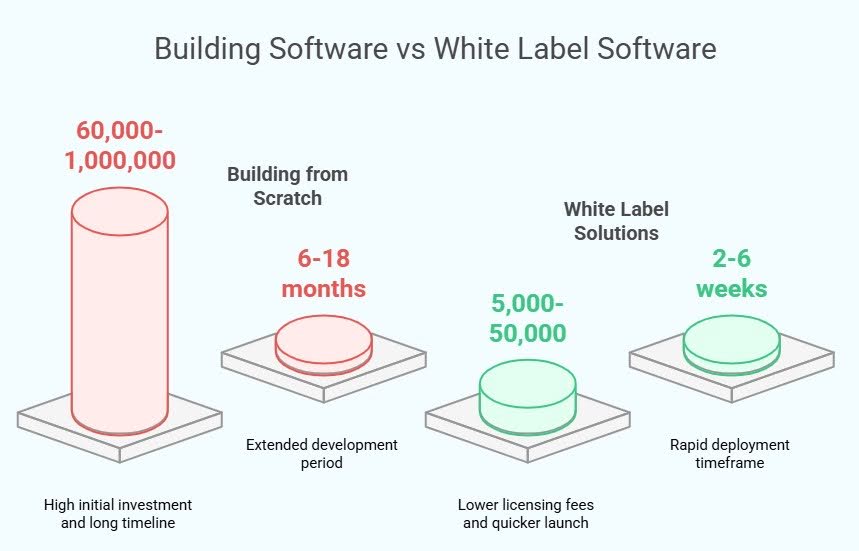
Source: Profitbooks
Private label SEO tools place your brand in front of the insights in no time. They are much more direct and easy to navigate (use). That small peculiarity changes reviews, handoffs, and expectations.
By comparison, traditional suites keep you inside their ecosystem, which is fine if clients never log in. They are designed for greater depth and require more time to maintain, especially if something doesn’t work as intended. The support is limited, and downtime can be significant.
Rebrandable SEO platforms are built for multi-account life: templates, permissions, and scheduled delivery. Traditional options are great for focused tasks, but often require manual packaging when you need to share.
Cost-wise, free tiers are helpful to evaluate fit, but capacity and automation live on paid plans. Teams choose white label tools to reduce repetitive formatting and keep conversations in one familiar place.
Here is a quick comparison table:
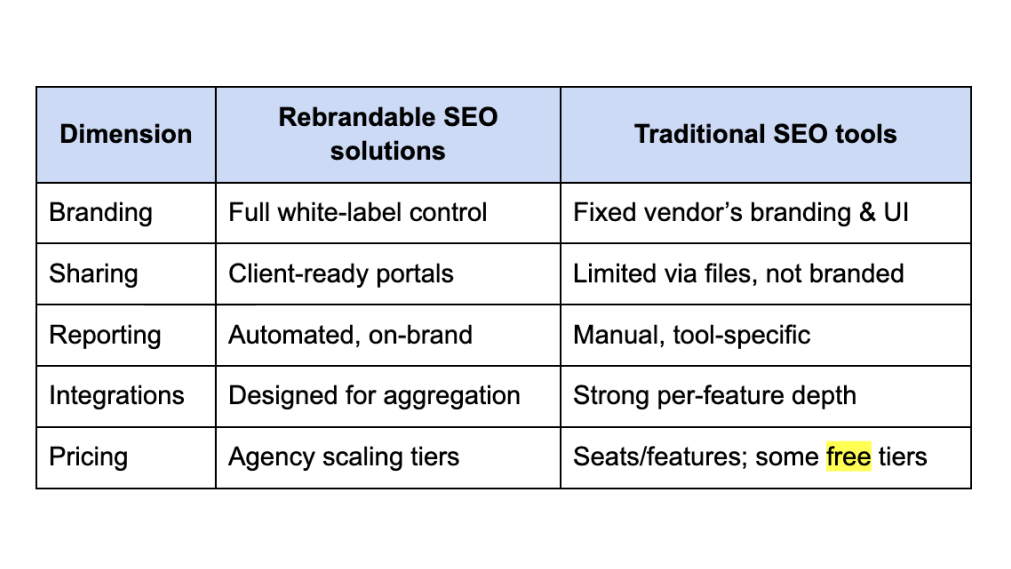
Both styles can live side by side. Many agencies pair a rebrandable hub with one or two specialist tools for deep dives.
Choose the stack that matches your delivery style. If client-facing polish is non-negotiable, rebrandable SEO platforms fit the brief; for specialists, traditional tools remain indispensable.
Top Benefits of Using White Label SEO Tools
In 2025, rebrandable SEO software is booming. Many specialized SEO agencies and individual consultants choose this option over the traditional SEO tools. Why? Let’s find out together.
1. Enhances Agency Credibility
An agency that deploys such a tool with its brand name looks more professional in the eyes of its customers. The tool offers more options than any traditional ones, especially their free versions.
The clients may never know that the “proprietary” SEO software was designed and is maintained by a third party. All they ever see is the brand name and administration permissions being distributed by their SEO partner.
White label SEO tools for agencies enhance their credibility and help gain more clients, who stay loyal for a longer time.
2. Saves Time and Resources
With white label tools, agencies and consultants don’t need to develop their own or in-house solutions. This significantly saves their time, money, and manpower. They don’t need to hire in-house or external developers to make such a tool. Free-riding on others — professional SEO developers — is the optimal choice.
3. Improves Client Retention
With the best white label SEO software onboard, agencies enjoy better client retention. The former become hooked by the professional feel and look of such software. Advanced analytical capabilities improve strategy and decision-making, while branded dashboards increase the sense of control and confidence.
4. Boosts Revenue Opportunities
Agencies often turn white label SEO software into upsell opportunities. Instead of only selling hours of consulting, you can sell access to a branded client portal or advanced reporting suite. Some firms even bundle the tool into tiered service plans, charging more for features such as live dashboards, competitor analysis, or white label link-building services.
5. Streamlines Reporting
Rebrandable SEO tools come with a wide choice of reporting options and configurations. They offer live dashboards and give clients complete control (depending on the subscription plan) over the tool’s functionality. Automated, branded reports and 24/7 website monitoring save clients hours weekly.
Besides, the agency’s support team can provide in-depth SEO reports on the client’s demand at any time.
6. Supports Scalability
SEO software that can be rebranded and customized is often ideally suited for scalability. It is designed to be flexible, allowing for easy onboarding of new clients without incurring extra costs or requiring additional staff.
In practice, with standardized dashboards and permissions, adding ten clients isn’t much harder than adding one. The platform can also sync contacts with an email marketing platform, allowing monthly summaries, feature updates, and renewal nudges to be sent automatically.
7. Strengthens Client Trust
An SEO software labeled as proprietary, bespoke, etc., naturally increased customer trust. The thinking goes: “If this agency were able to create and run such an all-round and sophisticated tool, they must be really good at what they are doing”.
Role-based access and a clean, branded portal make progress easy to verify. When insights arrive through white label SEO software, clients can trace outcomes to actions, which boosts confidence in both numbers and recommendations.
8. Offers Competitive Edge
By using branded SEO tools accurately and exquisitely fine-tuned by professional developers, agencies appear more advanced than rivals. Even a private SEO consultant, who had the resources to buy such a tool, will get a noticeable competitive edge over small and mid-size agencies, which didn’t bother to acquire such software and offer their clients advanced SEO services.
Key Features to Look for in White Label SEO Software
All the benefits mentioned above can only be realized if the SEO software possesses the necessary features. What to look for in a high-quality white label tool and how it can benefit one’s SEO services, we explore in detail in the list that follows.
1. Custom Branding and Client Dashboards
The must-have, the key features that every agency should check before buying white label tools, are the ability to put their brand’s name and provide clients with live and accurate reporting. The former stipulates customizable dashboards that clearly display rankings, traffic, and conversions in real time.
For a seamless client experience, the tool must enable adding one’s agency’s logo, domain, and colors, along with many other customizable interface features.
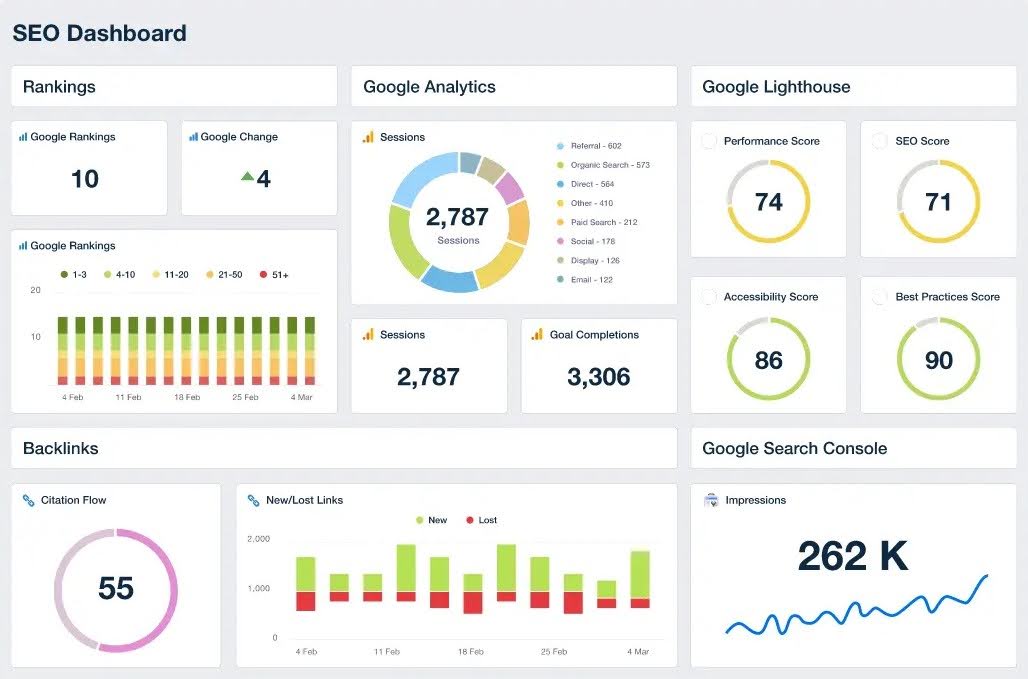
Source: AgencyAnalytics
2. Comprehensive Keyword Tracking
Keyword research and tracking are the cornerstone of SEO. When crawling your website, search engines “hunt” for keywords that match their user queries.
Therefore, a solid rebrandable SEO platform must provide advanced keyword tracking functionality. This means the tool should monitor rankings across devices and locations, track keyword movements over time, and reveal opportunities from competitor performance.
3. Website Audit and Technical SEO Tools
Technical SEO checks and in-depth site audits are some of the most popular SEO operations. Much like marketing automation software streamlines campaigns, automated site audits flag crawl errors, speed issues, and broken links without manual effort. This maintenance, if conducted regularly, helps keep the clients’ sites in the best shape possible and completely error-free.
4. Backlink Analysis and Link Monitoring
Another critically important feature of the best white label SEO software is its backlink analysis and management capabilities. This involves tracking backlink profiles, competitor links, and link quality metrics to improve off-page SEO.
Links are crucial for one’s search rankings, and they are directly tied to the volume of the referral traffic. Detailed link tracking gives both agencies and clients a clearer picture of long-term SEO health.
6. Automated, White-Labeled Reporting
Today, any SEO software without advanced reporting functionality is atavism. Agencies, as well as their clients, expect accurate, timely, and detailed reports on a range of SEO metrics: rank movements, crawl errors, domain authority, click-through rates, and referral traffic.
Moreover, just like contemporary marketing automation software, white label SEO software must be capable of generating automated reports. These don’t require human intervention and can be scheduled to collect data and disseminate tables, charts, and graphs for any periodicity.
The result — scheduled, branded reports that are delivered directly to clients without manual effort.
7. Client Management and Multi-Account Scalability
Last but not least, SEO agencies should ensure that the product they buy and label with their brand name must allow them to easily manage multiple clients, campaigns, and projects within one centralized platform. Similar to shared or virtual hosting models, multi-account scalability of SEO software allows dozens of different clients to share one physical space (processing power, RAM, bandwidth), but own different virtual modules.
Overview of the Best White Label SEO Tools
In this section, we’ll provide a brief overview of some of the best white label SEO software. The list is neither exhaustive nor complete, but for major SEO needs and tasks, it represents a good starting point.
1. Web CEO — Rebrandable SEO Suite You Can Actually Resell
Web CEO is a perfect beginner-friendly white label SEO software to start with. It lets agencies put their logo, colors, and even a custom domain on the toolkit — then resell the experience as their own.
You get a wide tool set (comprising rank tracking, keyword research, backlinks, audits, and even social monitoring) plus multilingual reporting for global clients. The trade-off: pricing can involve add-on fees for white-label extras, and the interface takes a minute to learn.
Once the Web CEO’s configuration is fully set up, the client portal feels polished and truly “yours.”
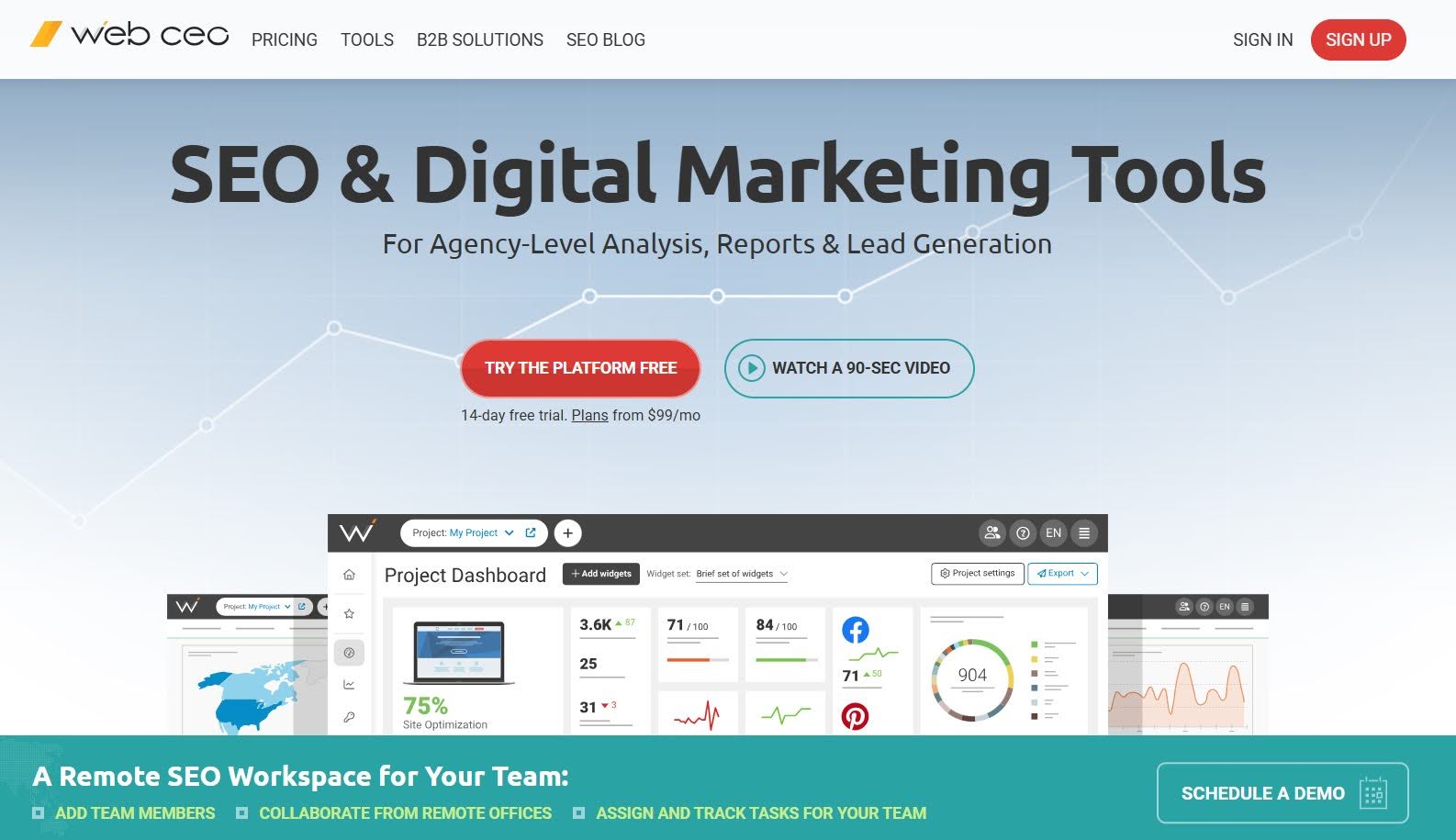
Source: WebCEO
2. SEOptimer — Budget-Friendly Audits with Multilingual Reports
If you are on a tight budget, SEOptimer could be a good option to try. It focuses on a decent price-performance ratio, but still packs many impressive features:
- Branded reports in 25+ languages;
- A deep site audit with 100+ checks;
- A solid backlink monitoring (the old MonitorBacklinks features live here).
You can add your branding and custom domain, then send neat, plain-English reports with your logo on. What else to wish for in a budget SEO tool?
All in all, it’s a practical pick when you need credible audits and link tracking without enterprise pricing.
3. SEMrush — Power Suite with Light White-Label
SEMrush leads in research depth and breadth (50+ tools), and you can always brand PDFs via “My Reports” on higher pricing plans.
It also offers fully white-label PPC reporting across many ad channels. What you don’t get is a white-label portal or domain — customization remains limited, and per-report fees add up on top of already premium pricing.
4. Serpstat — Team-Ready SEO with API & Branded Reports
Serpstat’s Agency plan adds branded live links/PDFs and DIY report templates, plus multi-user access for larger teams and an API to feed your own portal.
Other users repeatedly report it as a capable “one-roof” toolkit for tracking keywords, audits, and rankings.
It comes with some caveats, though. Here are some examples: no native client dashboard, databases can feel shallower than rivals, and as with the previous tool, the full white-label functionality lives on the pricier Agency tier.
5. BrightLocal — Local Listings, Citations & White-Label Reports
Built specifically for local SEO, BrightLocal helps you audit locations, build/fix citations, manage Google Business Profiles, and track local rankings — all under your branding.
You can set a house style for reports, automate delivery, and plug in GA/GSC. There’s an impressive depth too (over 300 audit data points), though report layout tweaks can feel somewhat limited.
For agencies owning local presence and reputation work, it’s a dependable, white-label choice.
6. MOZ Pro — Familiar SEO Stack, Light White-Labeling
MOZ Pro gives you several powerful staples — keyword research, site/tech audits, and link analysis — with simple branded PDF reports. If you want full client-facing portals, you’ll likely export MOZ data into a dedicated white-label dashboard (e.g., AgencyAnalytics).
Mid-size and enterprise-level companies often choose this software for its sheer versatility, power, and staged pricing plans. The former, by the way, can go really steeply high.
For a casual agency providing SEO services, MOZ Pro represents a reliable data engine; branding and presentation may live elsewhere.
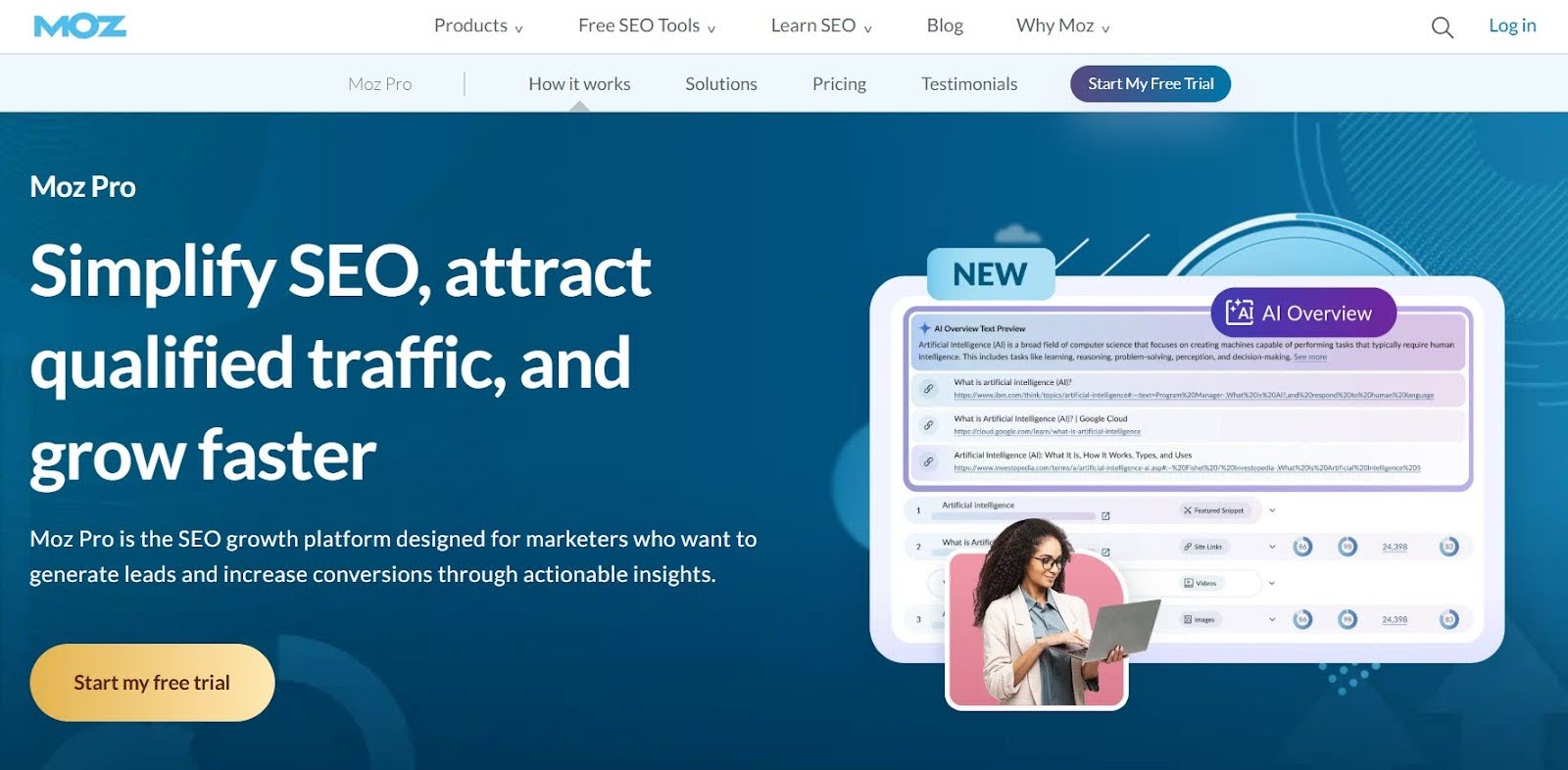
Source: MOZ
7. DashThis — Rebrandable Dashboards That Centralize Your Tools
DashThis is about presentation: custom logos, domains, themes, and drag-and-drop dashboards you can share by live URL, email, or PDF. It connects to 30+ sources, SEO tools, and marketing software (Ahrefs, GA4, MOZ, Semrush, WebCEO), and you can upload CSVs for custom data.
It’s great for tidy reporting, but heavy client rosters can push costs up, and advanced formula logic is limited.
8. ReportGarden — Templates, Widgets & a Client Portal
ReportGarden comes last in our list, but it definitely deserves your attention. It represents a neat branded portal, delivering automated reports and 1,000+ templates to speed their production and delivery.
Several customizable widgets help visualize marketing data and even ad previews. Built-in integrations cover Google Analytics 4, GSC, SEMrush, and more (with lots of PPC/social media targeting options).
Layout customization isn’t endless, and very large datasets can slow things down, but for fast, presentable reporting, it’s a solid fit.
Challenges and Limitations of Private Label SEO Tools
As you might have noticed while reading the previous chapter, even the best SEO tools aren’t perfect. They come with certain limitations and do not always perfectly meet the demands of SEO agencies and individual consultants.
Hence, we thought it would be prudent to zoom in on these limitations and challenges that no SEO agency can avoid when dealing with relevant white label software.
Limited Customization Options
It’s natural to think that a white label SEO software would give its buyers, SEO agencies, an unlimited carte blanche for customizations and tuning. However, in practice, things are not as bright as expected.
Many platforms restrict how deeply you can tailor features beyond simple logos and colors. Having your logo and product name on the front page of the tool is fine, and you might even be very satisfied with it for the first time, but as you start using and offering the tool to your customers, you’d inevitably want more.
For instance, you may want to rearrange the dashboards, as one of your customers could find the default layout inconvenient. The same refers to the full user interface, as over time, your “proprietary” SEO tool may look to various customers suspiciously similar to similar tools of other providers.
Even the basic operations with data, like exporting the raw datasets or adjusting the APIs (Application Programming Interface), may be inaccessible by default, unless you pay extra.
Dependence on the Software Vendor
The dependence on the software vendor stems directly from the previous limitation. Even if some features, unavailable by default, can be bought additionally, they still require you to negotiate with the software provider. This is a dependence you cannot avoid.
SEO agencies rely heavily on providers for software updates, uptime, and new features. If something goes wrong with the current version and errors occur, causing client frustration, the diagnostics and fixing will be entirely on your vendor’s side.
White label tools are not perfect, but you can prevent most problems and soften dependencies by concluding a strong SLA agreement with the vendor. Discuss and agree on the problem-resolution protocol that will minimize your reputation damage.
Similarly, you can reduce your spending in the future by defining which additional customizations and tweaks will become part of the main price package, not the expensive extras.
Integration Gaps with Other Tools
Integration issues are widespread in the SEO and marketing ecosystem, and white label SEO tools are no exception. While we did mention how they can connect with certain tools and platforms in the chapter above, problems with integrations are far too common not to cause noticeable frustration among users.
For instance, not all white label platforms connect smoothly with CRMs, advertising platforms, or analytics systems. Oftentimes, a smooth integration comes as an additional feature with a separate price tag (mostly expensive). Or, you can always go via a hard route, i.e., buy a default functionality and then request tuning and add-ons to allow for a perfect integration with your favorite CRM or HRIS.
Learning Curve for Teams and Clients
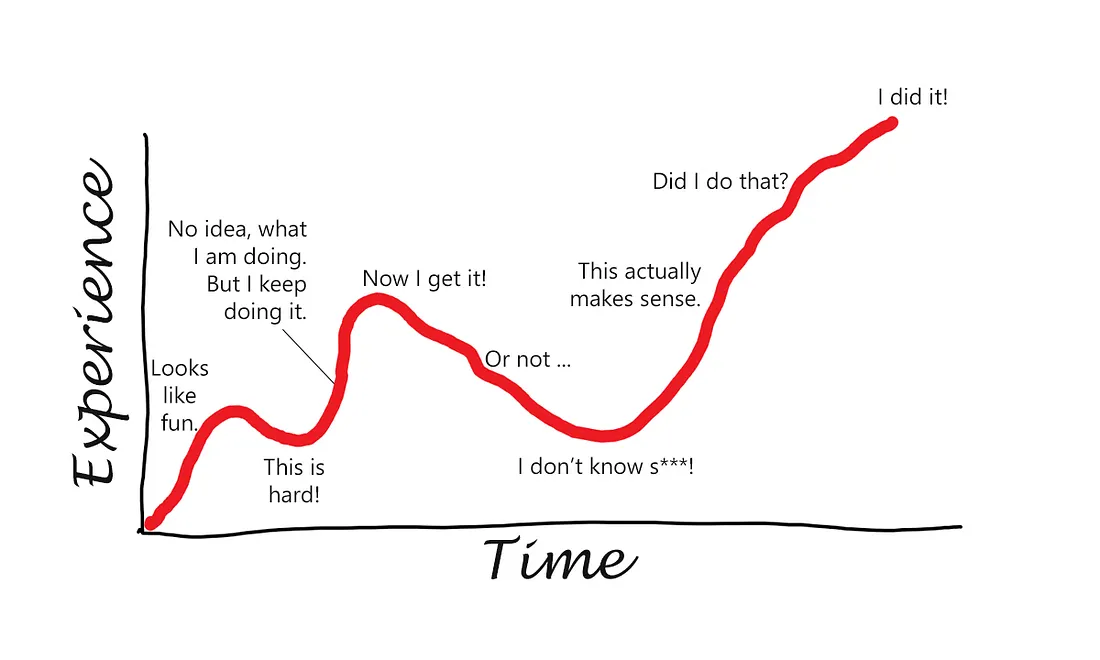
Source: KonstantinMB
Buying an off-the-shelf SEO tool doesn’t mean it will work for you by itself. You need qualified personnel to operate it, manage clients’ accounts, distribute access, generate reports, provide ongoing support, and resolve issues.
Unless you have these capabilities in-house, you’ll need to nurture them. Learning and training take time and resources, both financial and human (as those people who undergo training cannot simultaneously do other regular tasks).
Therefore, agencies and individual consultants often face onboarding challenges when adopting a new SEO system. Either because the skills are not there, or the system itself is complex and requires time to master.
Potential Hidden Costs
White label marketing agency pricing often includes extra fees for advanced features. Those may be for reporting limits or additional users, problem resolution, and 24/7 support from developers. Most basic features may still come for free, but anything special and extraordinary will cost money and will add to your regular expenses.
You can mitigate the risk of the unexpected hidden costs by concluding a thorough SLA agreement with your SEO provider. In this agreement, make sure to discuss and minimize the costs that you or your clients anticipate arising in practice.
Scalability Limitations
Imagine this: you’ve purchased your favorite SEO tool, labeled it with your brand, customized it, and started to actively deploy it to your client base. It has been a while since you’ve been operating your “proprietary” software under your brand, and your business has started to grow ever since.
Now you need to add more clients and meet the requirements of your market, but the tool cannot handle that many clients. It lags at peak loads, and at a certain point, you just cannot add any more clients.
That’s called scalability limitation, and, unfortunately, it has become a real issue for you now. Some solutions struggle to handle growth when agencies expand client portfolios. The vendor cannot scale the tool even with extra financing on your side, and you either need to buy another one and face the difficulties of operating two tools at the same time, or abandon the first one and buy a more capable software instead.
Either way, you’ll face higher costs and operational headaches that slow down your growth.
Risk of Uniformity Across Agencies
Some white label SEO vendors are more successful than others. They simply make better tools and have more experience in what they do. No wonder their products enjoy higher demand.
What happens in practice is that several clients end up using the same tool from the same vendor. While the superficial customizations like brand logo, interface colors, and some other trifles contribute to the feel and look of a bespoke and proprietary solution, down the hood, it remains the same tool with the same limitations (e.g., integration and scalability limitations). When clients of the SEO agency start using the tool, they’ll inevitably notice these similarities.
Differentiation becomes harder, and convincing an experienced client that your tool is a “proprietary” one and stands out from the competition becomes mission impossible.
Conclusion
White label SEO software is a modern, convenient way of scaling SEO services without the extra costs, time, and people resources required for building an in-house solution. It provides SEO agencies and individual consultants numerous benefits, including reduced costs, saved time, boosted credibility, and enhanced revenue opportunities.
At the same time, rebrandable SEO tools come with a range of known limitations. For instance, limited customization options, integration gaps with other tools, a steep learning curve, and dependence on the software vendor. Being aware of these limitations and preparing to mitigate and minimize them in advance can automatically give a competitive edge to an SEO agency.
Choosing the optimal SEO software for your needs is another viable approach. Aim to account for all your current and future (potential) requirements, such as those imposed by business growth and scalability.
Some of the best white label SEO software currently on the market include SEMrush, MOZ pro, ReportGarden, SEOptimer, and many others. They offer diverse price bundles and relevant functionalities, aiming to satisfy a diverse client base. Some SEO features come for free, but don’t expect them to cover anything more than your very basic testing needs.
Enter URL & See What We Can Do Submit the form to get a detailed report, based on the comprehensive seo analysis.




